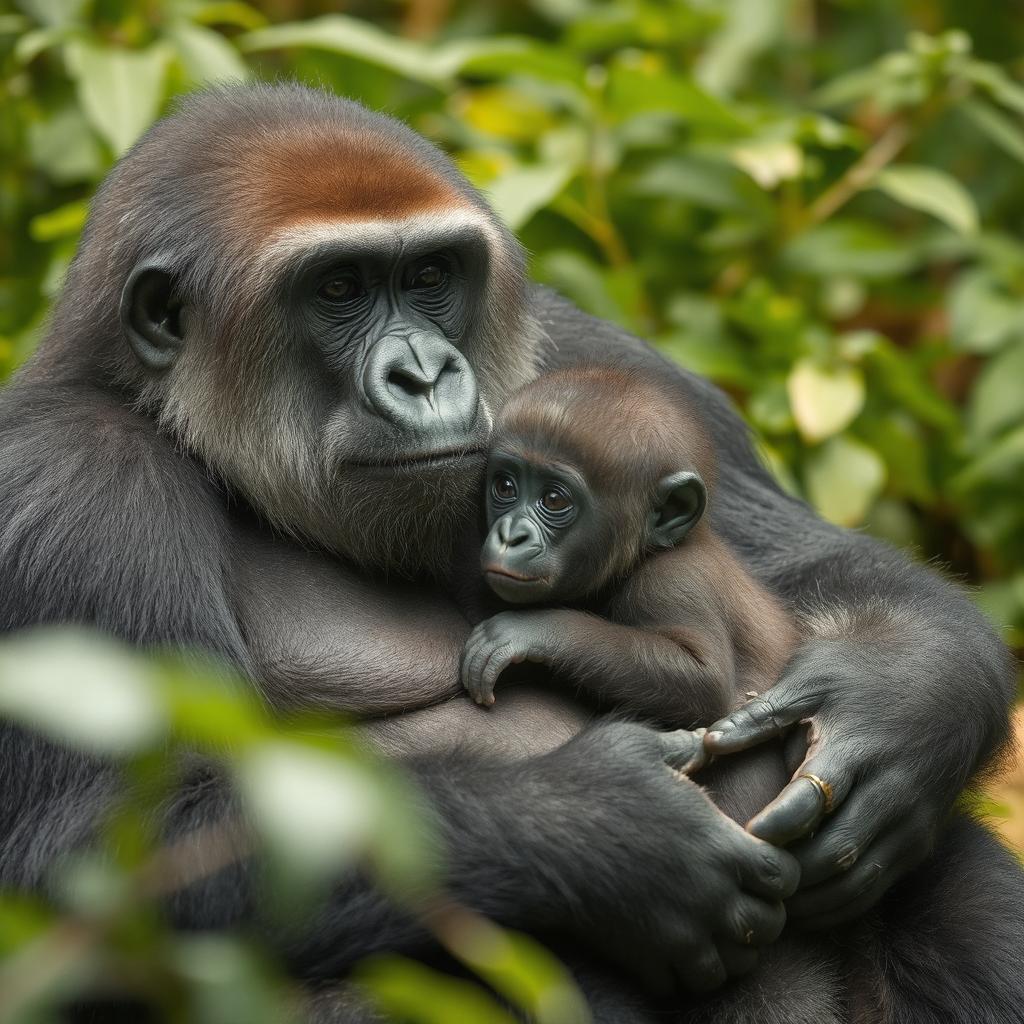Fascinating Facts About Baby Gorillas
Baby gorillas are some of the most adorable and captivating creatures in the animal kingdom. Known for their remarkable similarities to humans, baby gorillas go through unique developmental stages and have behaviors that are equally fascinating and heartwarming. Let’s explore some intriguing facts about these young primates that you may not know.
1. They Are Born Helpless
Just like human babies, newborn gorillas are born in a helpless state. They weigh around 4-5 pounds (1.8-2.3 kg) at birth, which is relatively small compared to the size of adult gorillas. At birth, they are entirely dependent on their mothers for survival. They can’t walk, see clearly, or feed themselves, and their first few months are entirely focused on bonding with their mothers and staying close to them for warmth and protection.
2. Gorilla Mothers are Very Protective
Gorilla mothers are incredibly nurturing and protective of their babies. After giving birth, the mother will keep her baby close, cradling it in her arms or carrying it on her back for the first few months of life. This bond between mother and baby is crucial for the infant’s survival, as it provides comfort and protection from potential predators. The mother gorilla’s attention to her baby is unwavering, and she will go to great lengths to ensure its safety.
3. They Develop Quickly
Baby gorillas grow rapidly in the first few months of their life. Within just a few weeks, they begin to show signs of mobility and coordination. By the time they are around 3 months old, they can start sitting up, and by 4-5 months, they begin to crawl. This early development is necessary for them to navigate the forest floor and keep up with their mothers.
4. They Rely on Their Mothers for Years
Unlike some animals that grow up quickly and become independent soon after birth, baby gorillas remain dependent on their mothers for several years. They are nursed by their mothers until they are about 3-4 years old, though they may start eating solid foods at around 6 months. Even as they grow older, baby gorillas continue to rely on their mothers for protection, guidance, and socialization until they are about 6-7 years old when they become more independent.
5. Baby Gorillas Imitate Their Mothers
Gorillas are known for their strong social structures, and babies learn a lot by observing their mothers. From a very young age, baby gorillas start imitating their mothers’ behavior. They may try to mimic actions like grooming, foraging for food, or even making specific vocalizations. This behavior helps them develop the skills necessary for survival and integrating into the social group.
6. They Have a Very Close-Knit Family Structure
Baby gorillas grow up in a tight-knit family structure, typically led by a dominant male, known as a silverback. The silverback acts as a protector and leader of the group, and baby gorillas are not only cared for by their mothers but also by other members of the group. They often form close bonds with their siblings, cousins, and other family members. These familial bonds help them learn important social skills and provide them with a network of support.
7. They Are Playful and Curious
Like human children, baby gorillas are incredibly curious and playful. They explore their surroundings by climbing trees, playing with objects, and engaging in games with other young gorillas. Play is an important part of their development, helping them improve their motor skills and social interactions. Baby gorillas can often be seen tumbling over each other, making playful vocalizations, and showing off their developing personalities.
8. Their Vocalizations Are Unique
Baby gorillas begin to make vocalizations from a very young age. At first, these sounds are simple, like whimpers or coos, but as they grow, their range of vocalizations expands. These sounds serve various purposes, such as signaling distress, communicating with their mothers, or expressing joy. As they become more social, their vocalizations also help them communicate with other members of the group, learning the nuances of gorilla communication.
9. They Have Tiny Baby Teeth
When baby gorillas are born, they have no teeth, but they begin to develop their first set of baby teeth at around 6 months of age. These teeth are essential for starting to chew and eat solid food. As they grow, their baby teeth are replaced by their permanent adult teeth. Their diet, which starts with milk and gradually shifts to leaves, fruit, and bamboo, helps strengthen their teeth.
10. They Are Highly Intelligent
From a very early age, baby gorillas show signs of high intelligence. They can recognize their mothers and other group members, solve simple problems, and learn through observation and imitation. Their cognitive abilities are highly advanced for their age, allowing them to navigate their social structure, understand the world around them, and communicate with others in increasingly complex ways.
11. They Form Deep Emotional Bonds
Baby gorillas, like adults, are capable of forming deep emotional bonds. They demonstrate affection and attachment to their mothers, siblings, and even other members of their group. This emotional connection plays a vital role in their survival and social integration, as they rely on the comfort and support of their family unit for protection and guidance.
12. They Have a Long Childhood
While most animals grow up quickly, baby gorillas have an extended childhood. They are considered infants until they are about 3 years old and remain dependent on their mothers for many years. This long childhood allows them to learn essential survival and social skills, preparing them for adulthood within their troop.
If you’re curious about the wonders of wildlife, stick around—there’s a whole world to explore at Wonder of Wild.

